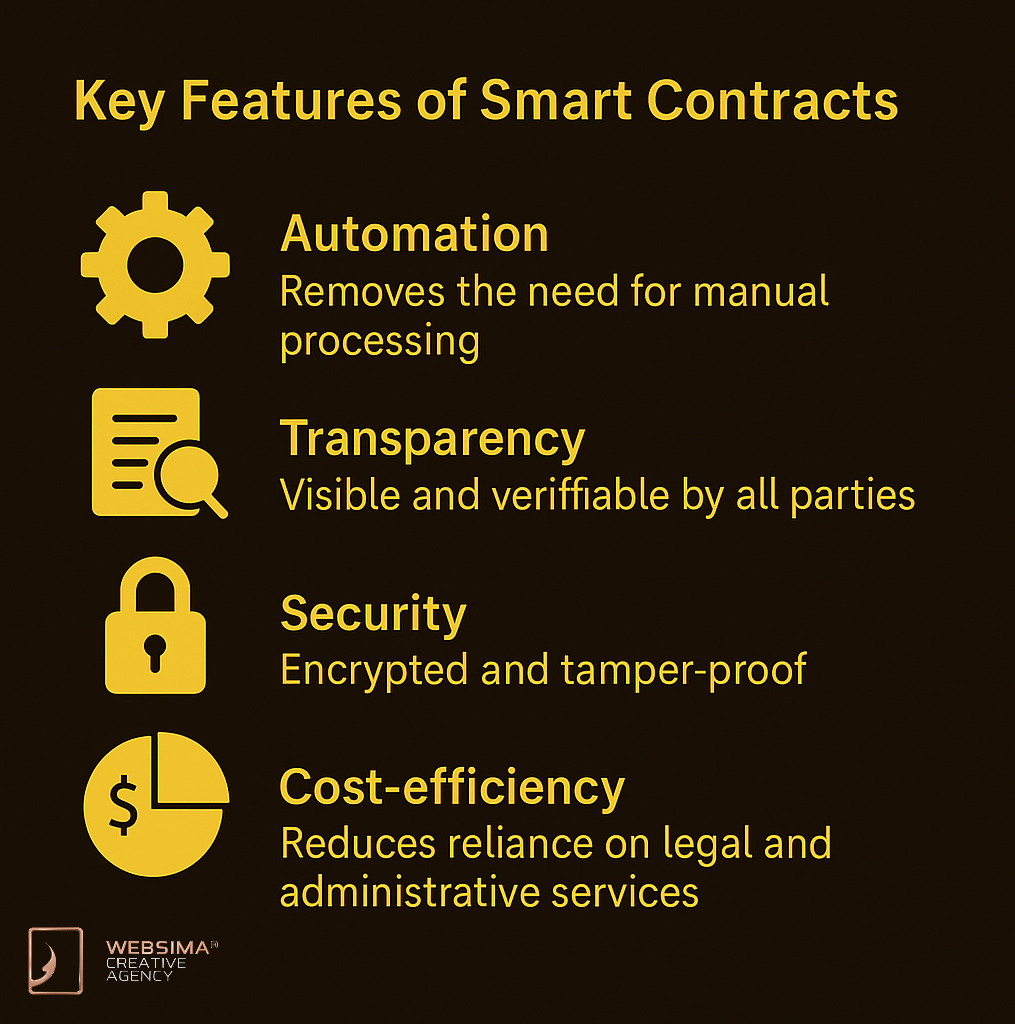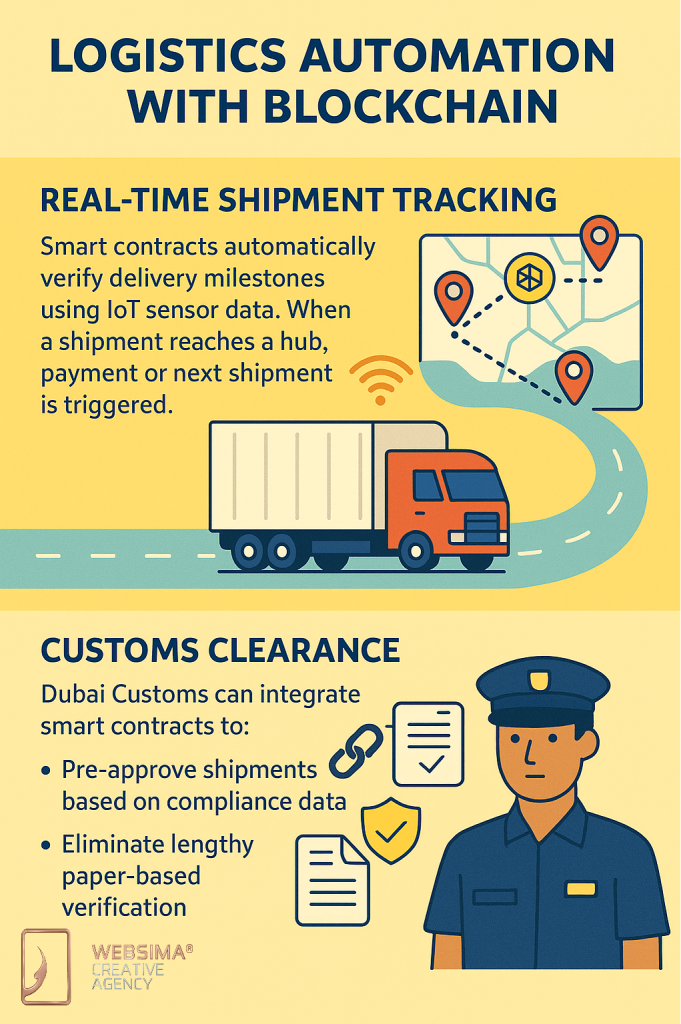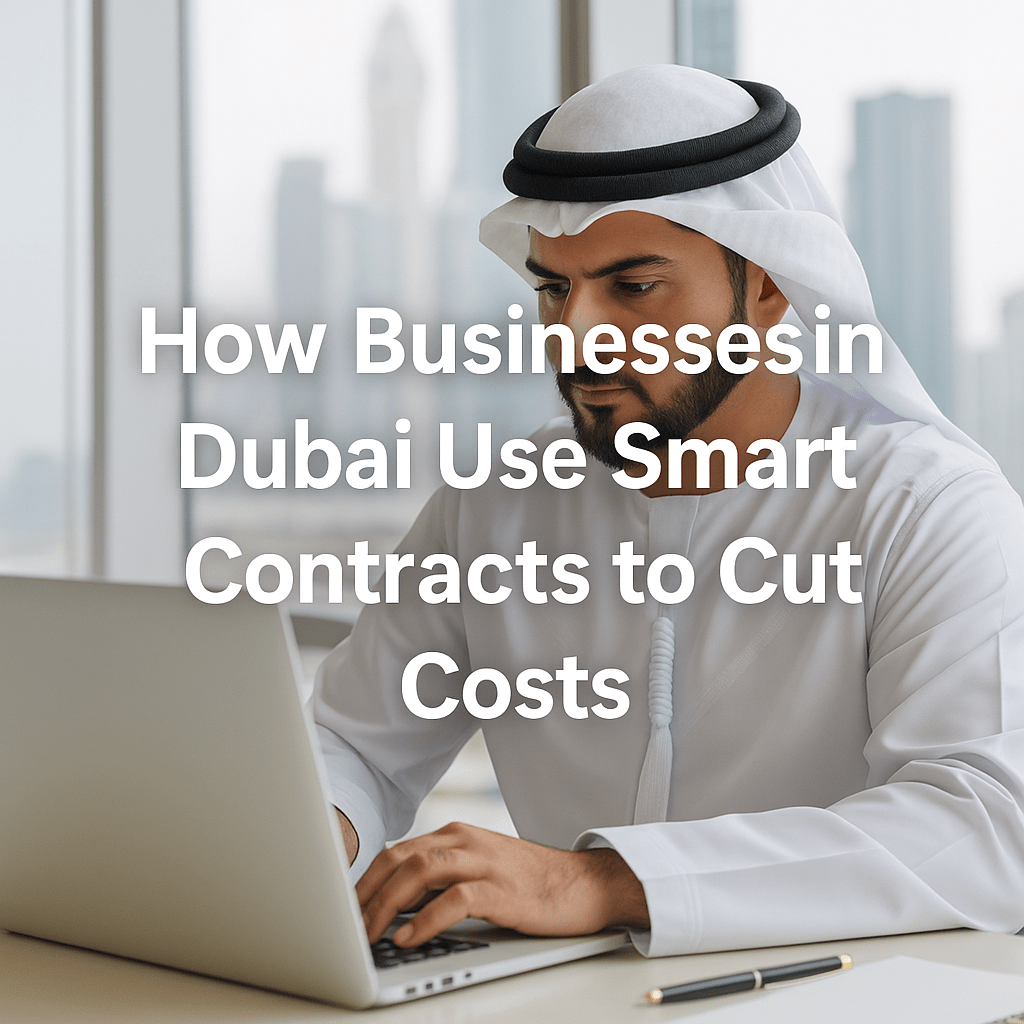Introduction
Dubai has established itself as a global leader in digital innovation, with blockchain technology at the core of its long-term strategic vision. As part of its Smart Dubai 2030 initiative, the city is actively transitioning toward a paperless, automated, and efficient economy, encouraging the public and private sectors alike to adopt advanced technologies that reduce costs and enhance transparency. Among these transformative tools are smart contracts—digital protocols that execute predefined actions once certain conditions are met, all without the need for intermediaries. Deployed on blockchain platforms, smart contracts in Dubai ensure secure, tamper-proof, and automated transactions, offering businesses a powerful alternative to traditional administrative processes.
DUBAI JUST WENT FULL CRYPTO
No joke, the government of Dubai will now accept crypto for official payments via https://t.co/4ZpBLWBacG
And no, this isn’t 2030.
It’s May 2025.Public services
Business fees
️ Government payments
All now payable in crypto, fully… pic.twitter.com/JptCp9tq5M— Pi Network Netherlands (@PiNLNews) May 15, 2025
This article explores how smart contracts are already cutting costs for Dubai-based businesses, with real-world examples, sector-specific use cases, and future-forward insights to help you understand why this isn’t just a tech trend—but a strategic shift worth investing in.
What Are Smart Contracts?
The main thing to understand is what smart contracts are and how they are used in Dubai? Smart contracts are programmed agreements stored on a blockchain. They automatically execute actions when predefined conditions are met—without intermediaries.
Key Features:

- Automation: Removes the need for manual processing
- Transparency: Visible and verifiable by all parties
- Security: Encrypted and tamper-proof
- Cost-efficiency: Reduces reliance on legal and administrative services
The applications of Smart contracts in Dubai businesses are growing as firms seek to reduce overhead and improve process reliability.
Cost-Saving Benefits of Smart Contracts in Dubai
1. Reduced Administrative Overhead
- Fewer hours spent on document verification and approval cycles
- Elimination of redundant paperwork and manual data entry
2. Fewer Legal Disputes
- Pre-coded terms reduce ambiguity and litigation risks
- Real-time execution ensures deadlines are automatically enforced
3. Lower Transaction Costs
- No need for banks, escrow agents, or notaries in many processes
- Instant payments on delivery reduce delays and processing fees
Use Case 1: Logistics Automation

a. Real-Time Shipment Tracking
Smart contracts automatically verify delivery milestones using IoT sensor data. When a shipment reaches a hub, payment or next shipment is triggered.
b. Customs Clearance
Dubai Customs can integrate smart contracts to:
- Pre-approve shipments based on compliance data
- Eliminate lengthy paper-based verification
Example: A smart contract between a freight company and a Dubai warehouse triggers customs filing as soon as GPS confirms arrival.
c. Payment Automation
Logistics providers receive automated invoice settlements when proof of delivery is uploaded on-chain.
Source: World Economic Forum – Blockchain in Supply Chains
Use Case 2: Real Estate Smart Contracts in Dubai
a. Tokenized Property Transfers
Instead of going through multiple rounds of paperwork, a smart contract can:
- Validate buyer identity via Dubai Land Department (DLD) systems
- Transfer ownership on receipt of payment
b. Automated Lease Agreements
Tenancy contracts in Dubai can be:
- Auto-renewed or terminated based on smart contract conditions
- Linked to DEWA and Ejari systems for real-time updates
Example: A tenant in Dubai Marina pays rent via a crypto wallet. The contract auto-renews monthly until notice is served.
c. Real Estate Investment Platforms
Dubai is a hub for fractional ownership via tokenized smart contracts. These platforms allow:
- Transparent share allocation
- Automated dividend distribution
Source: PwC – Blockchain in Real Estate
Use Case 3: Smart Contracts in Human Resources
a. Automated Payroll Systems
Smart contracts in HR can:
- Automatically release salaries upon completion of time-logged hours
- Adjust pay based on pre-approved KPIs
This reduces payroll processing time and eliminates disputes.
b. Freelance and Gig Economy Contracts
In Dubai’s thriving freelancer scene, smart contracts are used to:
- Hold funds in escrow until task delivery
- Automatically pay freelancers upon client approval
c. Leave and Benefits Management
Smart contracts automatically approve leave, reimburse expenses, and manage benefit eligibility—based on real-time HR data.
Source: SHRM – How Blockchain Will Transform HR
Challenges and Considerations
While smart contract business Dubai applications are expanding, several obstacles remain:
1. Legal Recognition
Although Dubai’s legal ecosystem is blockchain-forward, wider enforceability of smart contracts still needs regulatory support.
2. Code Risks
Audit and security practice for smart contracts in the UAE is still progressing. Bugs in the smart contract code can lead to irreversible transactions or security breaches.
3. Integration Costs
Legacy systems in HR or logistics may need major upgrades to support smart contract integration.
Future Outlook: Dubai’s Pro-Smart Contract Vision
Dubai aims to become the first blockchain-powered government under its Smart Dubai 2030 strategy. This means:
- All contracts involving government services may shift to smart contract formats
- A legal sandbox for blockchain regulation is being developed
- Increased use of Dubai Blockchain Center and Dubai Courts’ smart dispute resolution
How SMEs in Dubai Can Start Using Smart Contracts
- Identify use cases (payroll, leasing, B2B contracts)
- Engage a blockchain developer familiar with Solidity or Vyper
- Test on a sandbox network before deployment
- Consult legal advisors to align with Dubai’s digital compliance rules
- Integrate with Dubai Government APIs (e.g., DEWA, DLD, Ejari)
Conclusion: Why Dubai Businesses Can’t Afford to Ignore Smart Contracts
As Dubai continues to lead the Middle East in blockchain adoption, smart contracts have evolved from theoretical tools to practical cost-saving instruments. Companies across logistics, real estate, and human resources are discovering that smart contract automation not only saves money but also mitigates risks, improves transparency, and accelerates decision-making.
By cutting out intermediaries, reducing paperwork, and enforcing terms automatically, businesses can streamline operations like never before. Moreover, the Dubai government’s support for blockchain innovation, coupled with advanced infrastructure such as Dubai Blockchain Center, Dubai Courts’ smart contract frameworks, and integration-ready public platforms, makes this the perfect time to adopt the technology.
Forward-thinking businesses—whether SMEs or large enterprises—are already gaining competitive advantages by implementing smart contracts. With upcoming trends such as tokenized assets, real-time payrolls, and digital supply chain verification, the ROI potential for early adopters in Dubai is only increasing.
Ready to Slash Costs and Boost Automation? Let Websima Help You Build Smarter
At Websima, we specialize in turning smart contract potential into practical business value.
Whether you’re:
- Automating logistics with IoT-linked contracts
- Creating smart rental or sale agreements for properties
- Streamlining HR processes through blockchain
We have the tools and expertise to help you do it securely and legally.
With a proven track record in blockchain development, Web3 integration, and legal-smart contract alignment for UAE regulations, we’re here to help you modernize your operations and cut unnecessary costs.
Get in touch with Websima today and discover how smart contracts can future-proof your business.





